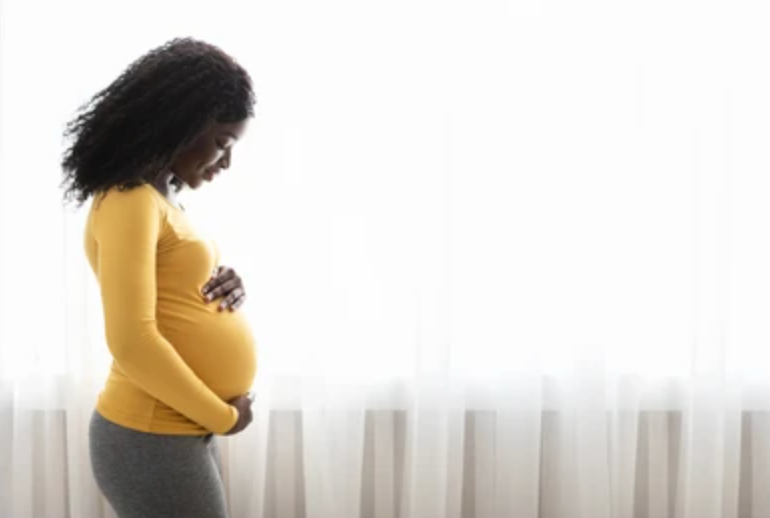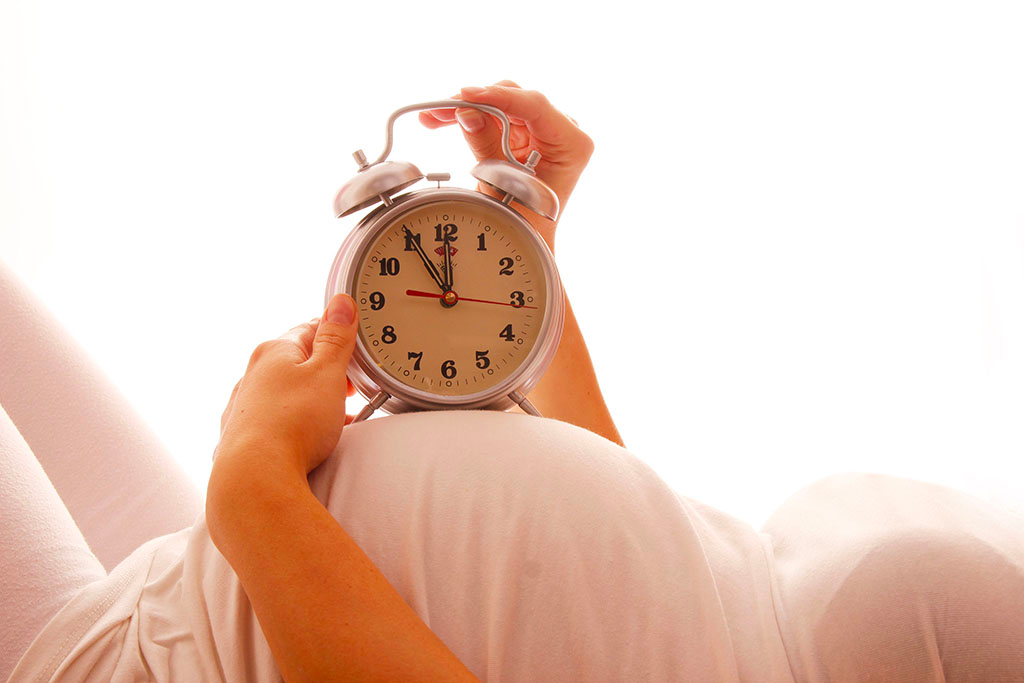Chances are you've heard that pregnancy may also give your hair life. You may think it's because of the vitamins and nutrients in your prenatal supplement. But, it's probably because of the changes happening in your body to support new life, though your prenatal vitamin can support these changes.
Let's take a step back to see what you should expect when taking prenatal vitamins and what they may be able to do for the health of your hair. If you're not pregnant and considering a prenatal to help with hair growth, you'll want to keep reading to discover why that may not be a good idea. There may be other ways to maintain sleek—or bouncy—locks. Finally, you can explore Seeking Health's prenatal vitamins designed to support pregnancy and good health from head to toe safely.

Does Your Hair Grow While Taking Prenatal Vitamins?
Many factors help hair grow, including genetics, hormones, and overall health. For example, you have high levels of estrogen, progesterone, prolactin, and growth factors in your blood when you're pregnant.(1) This surge of hormones can lead to longer and thicker hair.
Some studies show that the combination of L-cystine, thiamine, calcium-D-pantothenate, and folic acid may protect hair from damage and loss.(2) However, synthetic folic acid comes with a host of potential side effects, including masking a potentially serious vitamin B12 deficiency.(3) It’s best to avoid it and turn to naturally-occurring folate instead, like that found in Seeking Health’s vitamins and supplements.†
While taking a prenatal vitamin may not directly cause your hair to grow, it can help keep you healthy so you can grow stronger and longer hair.† But there’s no solid evidence showing that your hair will grow as a direct result of taking supplements.(4) It’s more likely a combination of vitamins and the biochemical processes occurring in your body.
What Should I Expect When Taking Prenatal Vitamins?
You can't expect dramatic results in hair growth from taking prenatal vitamins alone. They are, first and foremost, designed to support your health while you are pregnant and your baby's health during development. While taking a prenatal can contribute to overall health, hair growth during pregnancy may be due to the factors you read about earlier.†
Yes, your hair may become longer, thicker, shinier, and grow faster during pregnancy. But, these changes are subjective from person to person. And it’s important to mention that the changes are temporary. Hair growth will likely slow down after delivery. Hair growth is a gradual process influenced by various factors, though a prenatal vitamin can help create an environment conducive to supporting this process.†

What Are the Side Effects of Taking Prenatal Vitamins When Not Pregnant?
If you’re not pregnant and considering taking prenatals to increase hair growth, there are some things you should know before taking them. While you may be able to take prenatals safely, they come with side effects because they are designed to support pregnancy. You may find that the risks of taking a prenatal if you’re not pregnant may outweigh any potential benefit of hair growth.†
The side effects of taking prenatals when you’re not pregnant include nausea, constipation, or diarrhea.(5) This is because some prenatal vitamins contain ingredients that can cause disturbances if you have a sensitive stomach. Finally, excessive vitamin A—another vitamin sometimes found in prenatals—can be harmful and cause toxicity symptoms.(6)
Talk with your healthcare practitioner before adding prenatal vitamins to your daily routine. They can determine your risk and if the vitamins can offer you any benefit at all. You may even learn other easy ways to improve your hair’s health so it grows thicker and longer.(7)
How Long Does it Take Prenatal Vitamins to Work?
It's hard to say how long it takes for prenatal vitamins to work to support hair growth because that's not what they are designed for. Your hair may grow thicker and faster during pregnancy simply due to hormonal changes and increased blood circulation. This growth may occur during the sixth and ninth months of pregnancy.(8)
Hair growth is gradual, and changes may become more apparent over time. It's important to follow your healthcare provider's recommendations on prenatal supplement dosage and timing. Taking more will not make your hair grow faster. It may actually cause unwanted side effects or other health issues for you and your baby.
Talk with your healthcare provider about what to expect from your prenatals. Your practitioner can give you advice and check your health throughout your pregnancy.

Do Prenatal Vitamins Thicken Hair?
You may have heard that prenatal vitamins thicken hair. However, supporting scientific evidence is limited. You may also hear that biotin makes hair grow. It's marketed in everything from supplements to shampoo. Unfortunately, there isn't much evidence for biotin's role in hair growth.
Use caution when considering claims that prenatal vitamins can make your hair beautiful. Everyone's experience differs, and the vitamin's effectiveness may depend on other factors.
Your healthcare practitioner can help you set realistic expectations about hair growth and discuss which supplements you may be able to take to support your overall health and, ultimately, the health of your hair.†

Seeking Health’s Prenatal Vitamins
If you’re ready to start taking prenatal vitamins, you can check out the prenatal vitamins and supplements Seeking Health has developed to help support you throughout your pregnancy. You can safely take these supplements from when you first try getting pregnant until after delivery. Our prenatal vitamins also contain the right mix of nutrients to support your overall health and healthy hair growth.†
- Folinic acid is the best form of folate to use to support healthy hair growth. We offer this form in our Optimal Prenatal MF and Prenatal Essentials MF. Both options are methyl-free. They also contain zinc and selenium, which work with folinic acid to support healthy hair.†
None of the supplements in our prenatal collection contain iron. This allows you to customize your iron intake as your healthcare practitioner advises, which may be gentler on your body.
The Bottom Line
Remember, your prenatal vitamin supports your overall health during pregnancy. You shouldn’t rely on it solely for hair growth. Many factors cause hair to grow during pregnancy. These include hormones, blood flow, and genetics, which a prenatal can help support.†
You should talk to your healthcare practitioner before taking a prenatal vitamin if you're not pregnant but want to support healthy hair growth. You may experience uncomfortable side effects from these supplements. You can explore other safer ways to improve hair health to help it grow stronger and longer.
If you are pregnant or planning on becoming pregnant, we hope you’ll consider Seeking Health and its catalog of prenatal vitamins. We design our supplements to help keep you at your optimal best during pregnancy, which can support healthy hair growth during this miraculous time:†
References
- https://pubmed.ncbi.nlm.nih.gov/32731328/
- https://pubmed.ncbi.nlm.nih.gov/32801826/
- https://pubmed.ncbi.nlm.nih.gov/34634124/
- https://pubmed.ncbi.nlm.nih.gov/30547302/
- https://pubmed.ncbi.nlm.nih.gov/25922941/
- https://pubmed.ncbi.nlm.nih.gov/26247148/
- https://pubmed.ncbi.nlm.nih.gov/18004288/
- https://pubmed.ncbi.nlm.nih.gov/23682615/
- ‡ These statements have not been evaluated by the Food and Drug Administration (FDA). This product is not intended to diagnose, treat, cure, or prevent any disease.












